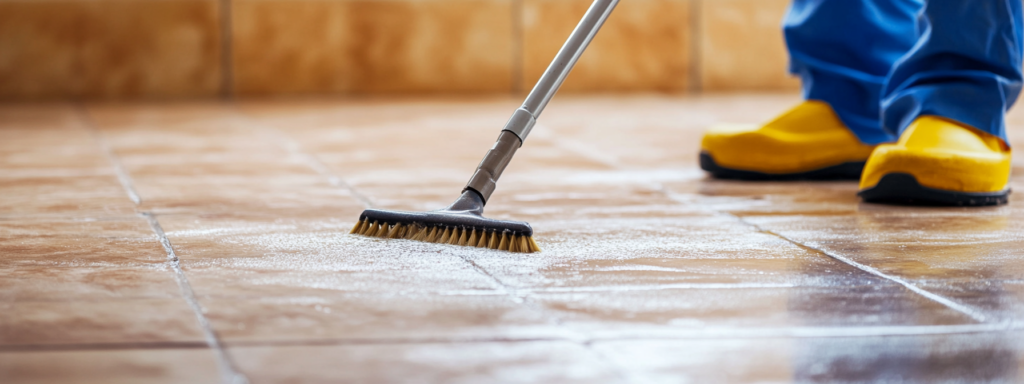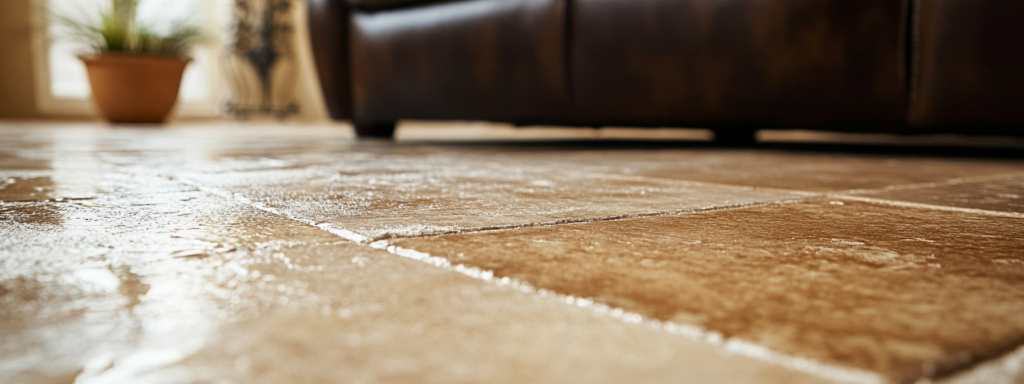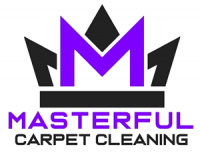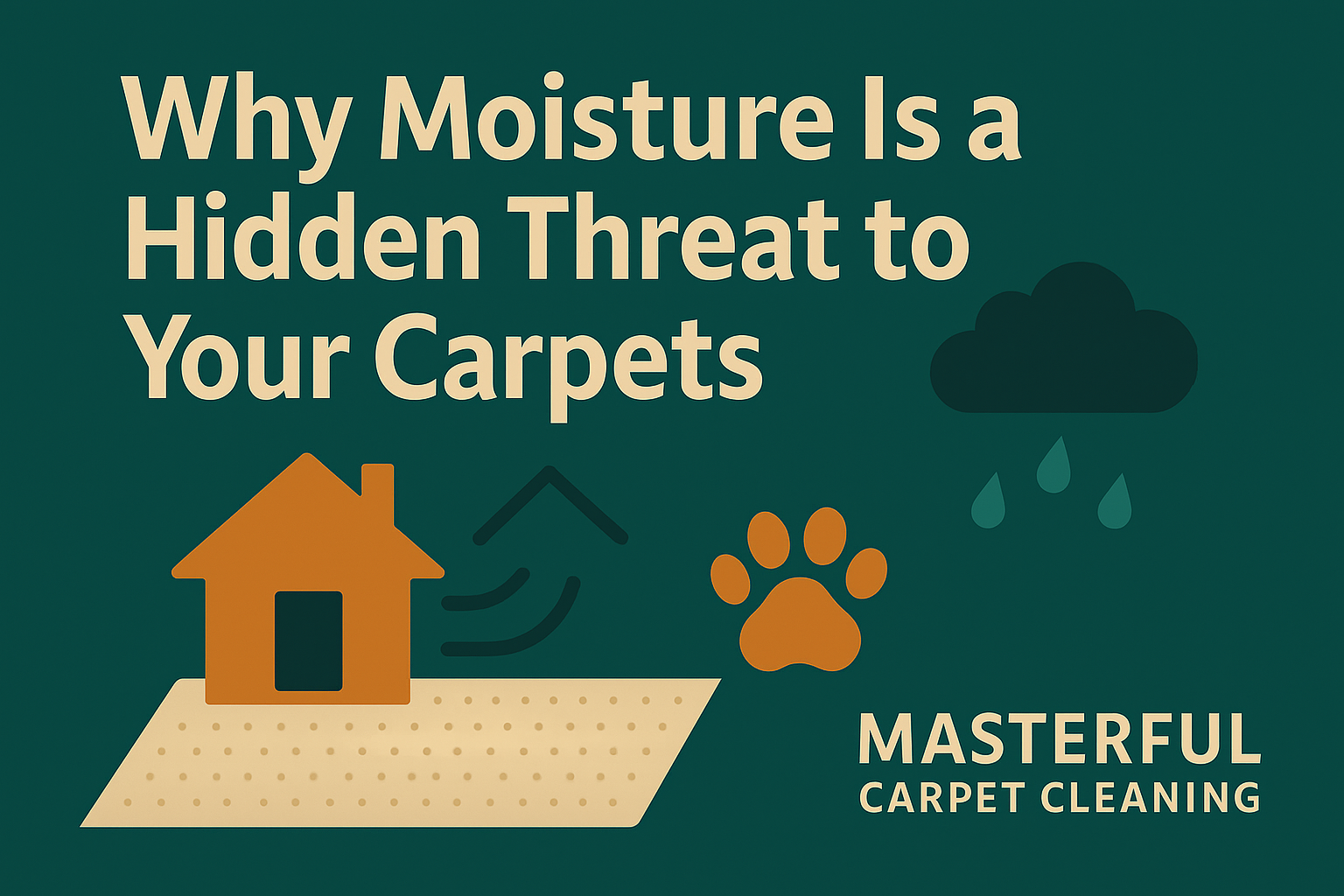Epoxy Grout Cleaning: A Comprehensive Guide

Epoxy grout is one of the most durable options available for tiled surfaces, known for its stain resistance, non-porous structure, and ability to withstand harsh conditions.
While epoxy grout is easier to maintain than cement-based grout, it still requires specific cleaning techniques to keep it looking its best. This guide provides everything you need to know about cleaning and maintaining epoxy grout, from everyday cleaning tips to handling tough stains.
What is Epoxy Grout?
Epoxy grout is a blend of epoxy resins and hardeners, making it more resilient against water, stains, and harsh chemicals. This grout type is commonly used in areas exposed to moisture, such as showers, kitchens, and outdoor spaces, because of its high resistance to mold and mildew.
Its non-porous nature means it doesn’t absorb water like traditional grout, making it less prone to staining. Epoxy grout can still accumulate dirt on its surface over time, requiring regular cleaning.

Benefits of Epoxy Grout
Epoxy grout has several advantages over traditional cement-based grout:
- Waterproof: Epoxy grout is highly resistant to water, making it perfect for wet areas like bathrooms and kitchens.
- Stain Resistance: Its non-porous structure ensures that stains don’t penetrate the surface, making it easier to clean.
- Durability: Epoxy grout doesn’t crack or shrink, even in high-traffic areas or environments with extreme temperatures.
- Low Maintenance: While it does require some care, epoxy grout needs less frequent maintenance compared to cement grout.
Do’s of Cleaning Epoxy Grout
1. Use a pH-Neutral Cleaner for Regular Cleaning
To clean epoxy grout without damaging it, use a pH-neutral cleaner that won’t strip the grout’s protective finish. These cleaners are effective in removing surface dirt and grime while preserving the grout’s shine. A regular cleaning routine with a mild cleaner ensures that your grout remains in excellent condition. Tile and grout cleaning services offer pH-neutral solutions to maintain your grout without causing damage.
2. Wipe Down Wet Areas After Use
In high-moisture areas like bathrooms, wiping down surfaces after use helps prevent soap scum and water spots from forming on the grout. Using a squeegee or a microfiber cloth after each use reduces the need for deep cleaning later on and keeps the grout looking clean and polished.
3. Use a Soft-Bristled Brush for Tough Stains
For tougher stains that won’t come off with regular cleaning, a soft-bristled brush can help scrub away grime without scratching the grout or surrounding tiles. Avoid metal or abrasive brushes, as these can damage the epoxy grout surface. Use circular motions to gently lift dirt from the grout lines.
4. Steam Clean for Deep Cleaning
Steam cleaning is an excellent way to sanitize and deep clean epoxy grout without using harsh chemicals. Steam penetrates the grout surface, removing bacteria and dirt while leaving no residue behind. Professional steam cleaning services provide thorough sanitization for areas that need extra attention, such as kitchens and bathrooms.
5. Seal the Grout After Cleaning
While epoxy grout is highly durable, applying a sealant can offer extra protection in areas subject to heavy traffic or spills. Sealers act as a barrier against dirt, oils, and water, making it easier to clean and maintain the grout over time. Regular sealing enhances the grout’s lifespan and keeps it looking new.

Don’ts of Cleaning Epoxy Grout
1. Avoid Harsh Chemicals and Abrasive Cleaners
Avoid using acidic cleaners, bleach, or any abrasive scrubbing agents on epoxy grout. These can cause the grout to become discolored or dull the surface finish. Stick to mild, pH-neutral cleaners designed for grout cleaning to prevent damage. Harsh chemicals may also corrode surrounding tiles, especially natural stone or delicate finishes.
2. Don’t Use Metal or Hard Scrubbing Tools
Using metal brushes or scouring pads can scratch and damage the smooth surface of epoxy grout, leaving it vulnerable to future damage. Always use non-abrasive tools, such as a soft-bristled brush or microfiber cloth, to gently clean the grout. If heavy scrubbing is required, consider hiring a professional tile and grout cleaning service to avoid accidental damage.
3. Don’t Let Grease and Dirt Build Up
Though epoxy grout is resistant to stains, surface dirt and grease can still accumulate over time, especially in high-traffic areas like kitchens. Regular cleaning prevents this buildup from becoming difficult to remove. The longer grime is allowed to sit, the harder it becomes to clean, which may require more aggressive cleaning methods that could damage the grout.
4. Avoid Over-Saturating with Water
While epoxy grout is waterproof, over-saturating the surface during cleaning can cause water stains and streaks. Instead of drenching the area with water, use a damp cloth to clean and then wipe it dry. For larger areas, using a wet mop that is well wrung out is the best option to avoid excess moisture.

Removing Stains from Epoxy Grout
Although epoxy grout is highly resistant to staining, certain materials can leave residue on the surface. Here are some tips for removing common stains from epoxy grout:
- Grease and Oil: A mild degreaser or dish soap mixed with water can help break down grease and oil. Apply the solution and let it sit for a few minutes before scrubbing with a soft-bristled brush.
- Soap Scum: In bathrooms, soap scum can leave a film on grout. A pH-neutral cleaner specifically designed to remove soap scum will prevent buildup without damaging the grout.
- Rust Stains: For rust stains, use a specialized rust remover that’s safe for epoxy grout. Always test the product in an inconspicuous area before applying it widely.
If stains are too stubborn to remove with household methods, consider booking professional grout cleaning services to restore the appearance of your grout without damaging it.
When to Call a Professional
If your epoxy grout has accumulated significant dirt, or if stains won’t lift with regular cleaning methods, it’s time to call in professionals.
A professional cleaning service can use advanced techniques, such as steam cleaning, to remove deep-seated dirt and bacteria. Tile and grout cleaning experts can assess your grout’s condition and recommend the best cleaning methods to bring it back to its original appearance.

Keep Your Epoxy Grout Looking Like New
Epoxy grout is a durable and low-maintenance option, but it still needs regular cleaning to maintain its appearance and hygiene.
By following the do’s and don’ts of cleaning epoxy grout and scheduling professional cleanings when needed, you can ensure your grout remains stain-free and looking great for years to come.
FAQs About Epoxy Grout Cleaning
How often should I clean epoxy grout?
Epoxy grout should be cleaned regularly, just like any other surface. For areas with high foot traffic or frequent exposure to moisture, like kitchens and bathrooms, it’s best to clean epoxy grout weekly to prevent dirt and soap scum buildup. For lower-traffic areas, cleaning every two weeks or once a month may be sufficient.
Is epoxy grout prone to mold and mildew like regular grout?
Epoxy grout is much more resistant to mold and mildew because of its non-porous nature. It’s still possible for mold and mildew to grow on the surface of epoxy grout, especially in areas with high humidity. Regular cleaning and wiping down wet areas will prevent this from becoming an issue.
Can I use vinegar or bleach to clean epoxy grout?
It’s not recommended to use vinegar, bleach, or any other acidic or abrasive cleaners on epoxy grout. These chemicals can damage the grout’s surface and dull its finish over time. Always opt for pH-neutral cleaners designed specifically for tile and grout maintenance.
Does epoxy grout need to be sealed?
Unlike traditional cement grout, epoxy grout does not need to be sealed because it is naturally non-porous. In some cases, a sealant can provide additional protection, especially in areas exposed to heavy dirt or stains. Sealing is not a requirement but can be a useful preventive measure for high-traffic or high-moisture spaces.
What’s the difference between epoxy grout and cement grout?
Epoxy grout is made from a combination of epoxy resins and hardeners, giving it a much more durable and stain-resistant quality compared to cement grout. Cement grout is porous, meaning it can absorb water and stains, requiring more maintenance and sealing. Epoxy grout is non-porous, waterproof, and much more resistant to cracks and stains.
Can epoxy grout be used on all types of tiles?
Epoxy grout works well with most types of tiles, including ceramic, porcelain, and glass. It may not be suitable for natural stone tiles, as the resin in epoxy grout can sometimes discolor the surface. If you’re considering epoxy grout for natural stone, it’s best to consult with a professional to ensure it won’t damage your tiles.
How do I remove tough stains from epoxy grout?
For tough stains on epoxy grout, try using a mild degreaser or specialized grout cleaner. Apply the cleaner and let it sit for a few minutes before scrubbing with a soft-bristled brush. If the stains persist, consider professional tile and grout cleaning services, which can remove deep-seated dirt and grime without damaging the grout.
Is epoxy grout easy to repair if it gets damaged?
Epoxy grout is much more durable than traditional grout, making it less likely to crack or shrink. If it does get damaged, repairing epoxy grout can be more challenging. It often requires removing the damaged section and reapplying new epoxy grout, which may be best handled by a professional.
What’s the best way to maintain the shine of epoxy grout?
To keep your epoxy grout shiny, regularly clean it with a pH-neutral cleaner and use a microfiber cloth to polish the surface after cleaning. Avoid abrasive scrubbers and acidic cleaners that could dull the finish. For extra shine, buff the grout with a soft cloth after cleaning.
For expert cleaning services, contact Masterful Carpet Cleaning to handle your grout and tile maintenance needs. Our professional tools and experience ensure a thorough clean that will leave your epoxy grout looking as good as new.
Author
-

As the Co-Owner of Masterful, Randy has been providing quality cleaning services to the Salem and Portland areas of Oregon for many years. He has built a reputation for excellence in the industry. His team take prides in using the latest cleaning techniques and technologies to deliver exceptional results every time.
View all posts






